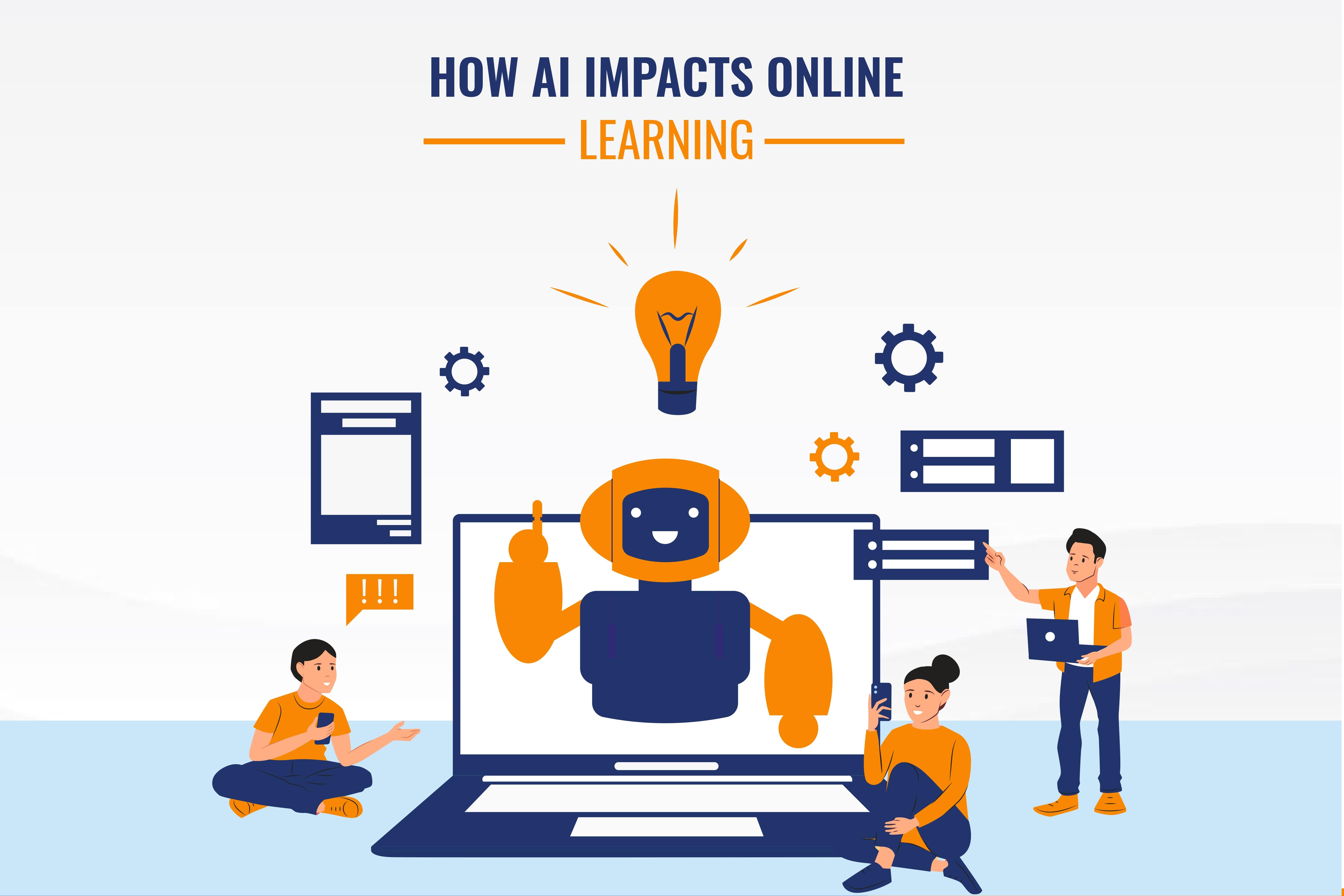
How Does AI Impact Online Learning?
In recent years, artificial intelligence (AI) has permeated various sectors, transformed traditional practices and enhanced efficiency. One domain that has seen significant evolution is education, particularly online learning.
With the advent of AI technologies, online learning platforms have witnessed a paradigm shift, offering personalized learning experiences, predictive analytics, and adaptive assessments. Let’s learn about the impact of AI on online learning, focusing on technical training programs, courses, and corporate training.
Understanding AI in Online Learning
AI encompasses a range of technologies, including machine learning, natural language processing (NLP), and data analytics. These capabilities empower online learning platforms to analyze vast amounts of data, identify patterns, and deliver tailored content to individual learners. Furthermore, AI algorithms can adapt to each learner's preferences, learning pace, and proficiency levels, thereby optimizing the learning journey.
Personalized Learning Experiences
One of the most significant benefits of AI in online learning is its ability to personalize the learning experience. Traditional one-size-fits-all approaches are replaced with adaptive learning models, where AI algorithms analyze learner behavior and performance to deliver customized content. For instance, in technical training programs, AI can identify areas of strengths and weaknesses, curate relevant resources, and recommend supplementary materials based on individual needs.
Moreover, AI-powered adaptive assessments ensure that learners are evaluated based on their specific competencies, providing targeted feedback and guidance for improvement. This personalized approach not only enhances engagement but also accelerates knowledge acquisition, leading to better learning outcomes.
Enhanced Content Delivery
AI algorithms play a crucial role in content delivery, optimizing course materials to meet the diverse needs of learners. Through natural language processing, AI-powered chatbots and virtual assistants engage with learners in real-time, answering queries, providing explanations, and offering additional support. This interactive approach fosters active learning and encourages learners to delve deeper into complex topics.
Furthermore, AI-driven content recommendation systems analyze learner interactions and preferences to suggest relevant resources, such as articles, videos, or simulations. By catering to individual interests and learning styles, these recommendations enrich the learning experience, making it more dynamic and engaging.
Predictive Analytics and Learning Insights
Another significant aspect of AI in online learning is its ability to harness predictive analytics to anticipate learner behavior and performance. By analyzing data such as course interactions, assessment scores, and study patterns, AI algorithms can identify at-risk learners and intervene proactively. For example, if a learner exhibits signs of disengagement or struggles with specific concepts, the system can offer targeted interventions, such as additional practice exercises or personalized tutoring sessions.
Moreover, AI-generated learning insights provide instructors and administrators with valuable feedback on course effectiveness, learner progress, and areas for improvement. By leveraging data-driven insights, educators can refine instructional strategies, tailor content delivery, and optimize course design to enhance learning outcomes.
Corporate Technical Training
In the corporate sector, AI has revolutionized technical training courses by offering scalable and cost-effective solutions. With the increasing demand for skilled professionals in technology-related fields, companies are turning to online learning platforms to upskill their workforce. AI-powered training programs cater to employees' specific job roles, technical requirements, and career aspirations, ensuring that learning objectives align with organizational goals.
AI-driven performance analytics enable employers to track employee progress, assess skill gaps, and measure the impact of training initiatives. By monitoring key metrics such as proficiency levels, certification rates, and job performance, organizations can identify high-potential talent, allocate resources effectively, and tailor professional development plans to individual career trajectories.
Additionally, AI-enabled simulations and virtual labs provide hands-on experience in a risk-free environment, allowing employees to practice complex Technical Transformation courses and troubleshooting procedures. This immersive approach not only enhances skill acquisition but also boosts confidence and proficiency in real-world scenarios.
Challenges and Future Directions
While AI holds tremendous potential for transforming online learning, it also presents certain challenges and considerations. Privacy concerns related to data collection and usage, algorithmic bias in content recommendations, and the need for transparent accountability mechanisms are among the key issues that must be addressed.
Looking ahead, the future of AI in online learning is likely to be shaped by advancements in areas such as adaptive learning algorithms, immersive technologies (e.g., virtual reality), and decentralized learning ecosystems. Moreover, the integration of AI with emerging trends such as corporate technical training, microlearning, gamification, and social learning holds promise for creating even more engaging and effective learning experiences.
Conclusion
AI is revolutionizing online learning, particularly in the realm of technical training programs and corporate technical training. By offering personalized learning experiences, enhancing content delivery, and leveraging predictive analytics, AI empowers learners to acquire new skills and knowledge effectively. As technology continues to evolve, the intersection of AI and online learning holds immense potential for reshaping education and preparing individuals for the demands of the digital age.
